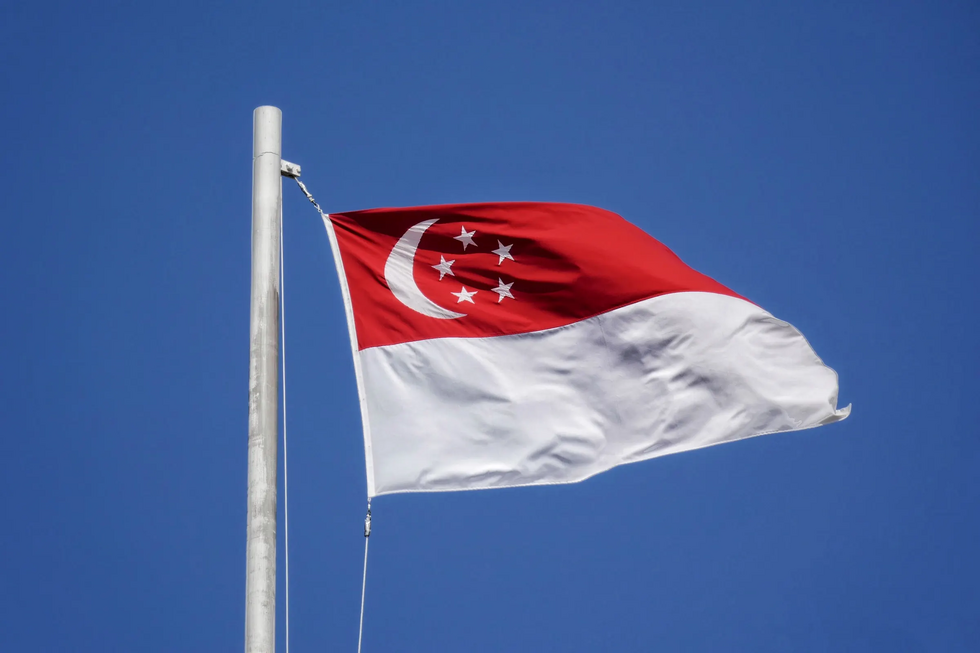Tax guide for Americans in Singapore

Balancing obligations from both the US and Singapore can be challenging. This guide simplifies the tax intricacies for American expats, offering clear insights into taxes in Singapore and strategies for efficient tax management.
Whether you're new to Singapore or have been residing for years, this guide provides the essentials to navigate your tax responsibilities effectively. Dive in for a streamlined approach to your financial obligations.
This article is brought to you by Taxes for Expats (TFX) – a top-rated tax firm serving US citizens, residents, and anyone with US tax obligations, both at home and abroad. Living in Singapore and need help with your US taxes? Schedule your free discovery call, and we’ll review your case and walk you through the next steps.
Overview of Singapore
| Primary tax form for residents | Singapore Individual Tax Return (Form B1). |
| Tax year | January 1 – December 31 |
| Tax due date | April 15 |
| Criteria for tax residency | Reside in Singapore for at least 183 days per year. |
| US tax filing requirements | Must file Form 1040 and report worldwide income. |
| Eligibility for FEIE | Qualify under the physical presence or bona fide residence test. |
| Methods of Double Tax Relief | Through the US-Singapore tax treaty and foreign tax credits. |
| Tax residency for dual citizens | Taxed by both countries, but the treaty helps prevent double taxation. |
| Estate and inheritance tax | Singapore has no estate tax, but US estate tax may apply. |
| Overview of local tax rates | Progressive rates up to 24%. |
Resident vs. non-resident of Singapore
When it comes to taxation, the distinction between being a resident or nonresident in Singapore is crucial.
Residents are subject to progressive tax rates ranging from 0% to 22%, while non-residents are taxed at a flat rate of 22%. Residents are also entitled to various personal reliefs and deductions, which can significantly reduce their tax liability.
On the other hand, non-residents are not eligible for these benefits. Therefore, becoming a tax resident could be more advantageous for most expats.
Who can be considered a resident of Singapore
Determining your Singapore residency status is the first step in understanding your tax obligations. In this section, we look at the three main options for becoming a Singapore tax resident.
Option 1: Singapore employment pass
The Singapore Employment Pass is designed for foreign professionals, managers, and executives who have a job offer in Singapore.
To qualify, you must have a fixed monthly salary of at least 4,500 SGD (higher for older and more experienced candidates) and recognized qualifications. Holders of an Employment Pass are considered tax residents if they have been staying in Singapore for at least 183 days in a calendar year.
This status allows them to benefit from progressive tax rates and tax reliefs.
Option 2: Global Investor Program (GIP)
The "Global Investor Program" is aimed at high-net-worth individuals who are willing to invest a significant amount in Singapore's economy.
Investments can be made in various sectors, including manufacturing, financial services, and healthcare. GIP participants are granted permanent resident status, making them tax residents as well.
This program is particularly beneficial for those who plan to make long-term investments in Singapore, as it offers tax advantages and easier access to various forms of credit and business opportunities.
Option 3: Singapore EntrePass
The EntrePass is designed for foreign entrepreneurs who wish to start and operate a new business in Singapore.
The business must be in a qualifying sector, such as technology or healthcare. Like Employment Pass holders, EntrePass holders are considered tax residents if they meet the 183-day criterion.
Resident income tax
People who are considered Singapore residents are subject to a progressive tax scale on the income they receive. The tax rates vary from 0% to 24%.
Residency is determined based on how much time the individual spent in the country during the tax year in question — the standard 183-day presence test usually applies.
Singapore income tax rates
You can find tax brackets and their corresponding rates for 2024 and 2025 (income years 2023 and 2024) below.
| Taxable income (SGD*) | Percentage on excess (%) |
| 0-20,000 | 0 |
| 20,000-30,000 | 2 |
| 30,000-40,000 | 3,5 |
| 40,000-80,000 | 7 |
| 80,000-120,000 | 11,5 |
| 120,000-160,000 | 15 |
| 160,000-200,000 | 18 |
| 200,000-240,000 | 19 |
| 240,000-280,000 | 19,5 |
| 280,000-320,000 | 20 |
| 320,000-500,000 | 22 |
| 500,000-1,000,000 | 23 |
| 1,000,000 and above | 24 |
* Singapore dollars
Other types of taxes in Singapore
Singapore's tax system is known for its simplicity and competitiveness. The city-state offers a range of tax types, each designed to cater to different segments of the population and business community.
This section will deal with tax for non-residents — we’ve covered residents above.
Non-resident income tax
Non-residents are taxed at a flat rate of 22% on their Singapore-sourced income. However, it's essential to note that non-residents are not entitled to personal reliefs and deductions that residents can claim.
This flat rate system simplifies tax calculations for non-residents but can be higher than the rates some residents pay, especially those in the lower income brackets.
Capital gains taxes
Singapore does not impose a capital gains tax. This means that profits from the sale of assets, such as property, stocks, or bonds, are not taxed.
This absence of capital gains tax is one of the features that makes Singapore an attractive destination for investors.
Goods and Services Tax (GST)
In Singapore, GST is currently set at 9%. This tax is similar to the Value Added Tax (VAT) in many other countries. While businesses collect GST from their customers, they also claim credits for the GST they've paid on their business purchases. This ensures that the tax is borne by the final consumer of the goods or services.
Property tax
In Singapore, property owners are subject to an annual property tax that is determined based on the value of their assets, be it buildings, houses, land, or tenements.
- Owner-Occupied Residential Property: For those who reside in their own homes, the property tax rates are progressive. They start at a minimal 0% and can go up to a maximum of 16%, depending on the property's annual value.
- Non-Owner Occupied Residential Property: Properties that are rented out or left vacant fall under this category. The tax rates for such properties are slightly higher, ranging from 10% to 20%. This reflects the potential rental income these properties can generate.
- Land and Non-Residential Properties: Whether it's a piece of land or a commercial space, such properties are taxed at a flat rate of 10%.
Stamp duties
Stamp duties are taxes paid on documents relating to the transfer of certain types of properties or rights.
Immovable properties
When buying or selling real estate in Singapore, stamp duty is typically required. The rate depends on the property's value and the buyer's profile (e.g., first-time buyer, foreigner).
Additional Buyer's Stamp Duty (ABSD) might also apply, especially for foreigners or those owning multiple properties.
Leases
Stamp duties are also applicable to lease agreements. Whether you're renting a residential or commercial property, stamp duty is payable on the lease agreement, based on the rental amount and the lease period.
For lease agreements that cover a period of up to four years, the stamp duty rate is set at 0.4% of the total rent for the entire lease duration.
For lease agreements that extend beyond four years, the stamp duty is calculated differently. Instead of basing it on the total rent for the entire lease period, the tax rate is 0.4% four times the average annual rent for the lease duration.
Renters are exempt from stamp duty if their lease agreement stipulates an average monthly rent that is less than 1,000 SGD.
Stocks and shares
Transactions involving the transfer of shares and interests are also subject to stamp duty at 0.2% of the purchase price or market value of the shares or interests, whichever is higher.
Foreign Worker Levy (FWL)
In Singapore, businesses that employ foreign workers under the Work Permit and S Pass categories are required to pay the FWL.
The levy amount varies based on the sector in which the company operates and the worker's qualifications. The primary objective of the FWL is to ensure that businesses consider hiring locals before turning to foreign labor.
By adjusting the levy rates and quotas, the government can manage the foreign workforce's size and composition, ensuring that industries remain competitive while providing job opportunities for locals.
Skills Development Levy (SDL)
All employers in Singapore are required to contribute to the SDL for all employees up to the first 4,500 SGD of gross monthly remuneration at a rate of 0.25% or 2 SGD, whichever is higher.
The funds collected are channeled to the Skills Development Fund, which finances various training and development programs.
Corporate tax
Singapore boasts one of the most competitive corporate tax rates globally. The headline corporate tax rate is 17%, but various schemes and incentives can effectively reduce this rate for many businesses.
The city-state adopts a territorial basis of taxation, meaning companies are taxed on the income earned in Singapore and specific types of foreign-sourced income brought into the country.
Solve your tax question – ask professionals
Overwhelmed by taxes? With the right information, it gets easier.
Submit your question, and you’ll receive an answer from tax experts within a few business days. While we can’t provide detailed consultations without reviewing your documents, we’ll do our best to assist.
Taxable vs non-taxable income in Singapore
Individual income can come in different forms — and each of these has their own rules and guidelines to consider.
Whether you're an employee, an entrepreneur, or an investor, understanding how your income is assessed can help you with financial planning and tax optimization.
Taxable income
1. Employment income
In Singapore, employment income includes not only basic salaries and wages but also bonuses, commissions, and allowances. Additionally, benefits-in-kind provided by the employer, such as housing and car benefits, are also considered taxable employment income.
Employment income is taxable in Singapore if the employment is exercised in the country, regardless of where the remuneration is paid or where the employer is based.
2. Equity compensation
Equity compensation refers to non-cash pay that represents ownership in a company and is often used to attract and retain top talent.
In Singapore, gains from equity compensation, such as stock options and shares awarded under employee share schemes, are considered taxable income.
The taxable amount is typically the difference between the open market value of the shares at the time of exercise or award and the price paid by the employee.
Such compensation is taxed at the time of exercise for stock options or when the shares are vested for share awards.
3. Business income
Business income in Singapore includes profits from any trade, business, profession, or vocation.
This encompasses earnings from the sale of goods or services, royalties, and rental income from business properties. Deductions are allowed for business expenses incurred in earning the income, ensuring that only the net profit is taxed.
Capital allowances can also be claimed for fixed assets used in the business, further reducing the taxable income.
4. Rental income
In Singapore, rental income is taxable after deducting allowable expenses related to the property. These expenses can include property tax, mortgage interest, repairs, and maintenance.
By offsetting these costs against the gross rental income, only the net amount is subjected to tax. Property owners should maintain detailed records of their rental-related expenses to claim these deductions accurately.
Non-taxable income
While Singapore has a comprehensive taxation system, certain types of income are exempt from taxation.
1. Retrenchment Benefits
Payments made by employers to compensate employees for the loss of employment, as well as payments for restrictive covenants, are not taxable.
2. Foreign-sourced Income
Generally, income sourced from foreign countries and received in Singapore is not taxable. However, there's an exception if such income is received by a resident individual through a partnership in Singapore.
3. Annuities
Annuities, which are continuous yearly payments arising from various sources such as an annuity policy from an insurance company, a gift, inheritance, or the sale of an asset, are not taxable in Singapore.
There are exceptions, though, such as when the annuity is received from a partnership, Supplementary Retirement Scheme (SRS), or if the annuity policy was purchased by an employer as a substitute for pension or other employment benefits.
4. Alimony/Maintenance Payments
Income derived from alimony and maintenance payments is exempt from taxation.
5. Windfalls
Winnings from betting and other games of chance are not considered income and are therefore not taxable. They are treated as windfalls.
6. Dividend income
In Singapore, dividends paid by local companies are typically tax-exempt for the recipient, thanks to the one-tier corporate tax system.
This system ensures that the company's profits are taxed at the corporate level, and when these profits are distributed as dividends, they are not subjected to further taxation in the hands of shareholders.
7. Interest income
For Singapore tax residents, interest earned from approved banks or finance companies in Singapore is exempt from tax.
However, interest derived from other sources, such as personal loans or overseas bank deposits, may be taxable.
It's essential to differentiate between tax-exempt and taxable interest sources to ensure accurate tax reporting.
Social security in Singapore
Singapore's approach to social security is distinct and is primarily managed through the Central Provident Fund (CPF).
Foreigners living in Singapore are generally not required to contribute to the CPF unless they obtain permanent residency status.
Once they become permanent residents, they will have to start contributing to the CPF.
The CPF tax rates are:
- 20% for employees
- 17% for employers
Additionally, self-employed permanent residents who earn at least 6,000 SGD annually are mandated to contribute between 6% to 8% of their monthly income to their CPF MediSave Account, capped at 5,760 SGD.
Singapore's pension system
Beyond the CPF, Singapore has taken steps to ensure that its aging population has adequate support in their golden years.
The primary pillar of Singapore's pension system is the CPF Life scheme, an annuity that provides lifelong monthly payouts during retirement.
CPF members are automatically enrolled in CPF Life if they have a minimum amount in their Retirement Account when they reach the scheme's eligibility age. The payouts vary based on the plan chosen and the amount of savings.
Additionally, the Silver Support Scheme provides an extra layer of financial support for the bottom 20% of Singaporean seniors, ensuring that even the most vulnerable have a safety net.
Tax deductions and credits for expats in Singapore
Expatriates in Singapore can benefit from a range of tax deductions and credits, which can significantly reduce their taxable income.
Employment expenses
Expatriates can deduct employment-related expenses that are not reimbursed by their employers. This includes costs like travel between home and workplace, entertainment expenses for clients, and subscriptions to professional bodies. Maintain proper records and receipts as evidence of such expenditures.
Personal deductions
Residents can rely on the following deductions to reduce their taxable income:
- Charitable Contributions: this goes for donations made to approved charitable organizations. Typically, the deduction is 2.5 times the donated amount.
- Mortgage Deduction: Interest paid on loans taken to purchase residential properties in Singapore can be deducted from the taxable income.
- Subscription Fees: Membership fees or annual subscriptions paid to professional bodies, which are essential for one's profession, can be claimed as a deduction.
- Medical Expenses: Medical expenses incurred for oneself or dependents can be claimed as deductions, but they are subject to specific limits. This includes expenses for surgeries, hospital stays, and certain treatments.
- Spouses: If an expatriate's spouse does not have any income or has an income that does not exceed a specific threshold, a spouse relief can be claimed, reducing the taxable income.
Personal reliefs
Personal reliefs in Singapore are designed to provide tax breaks for specific life circumstances or responsibilities. These reliefs can be claimed based on eligibility criteria. Some of the notable personal reliefs include:
- Earned Income Relief: For individuals earning income through employment or trade.
- NSman Relief: For Singaporean men who have completed their National Service.
- Parent/Handicapped Parent Relief: For individuals supporting their parents or handicapped parents.
- Qualifying Child Relief (QCR) & Handicapped Child Relief (HCR): For parents supporting children or handicapped children.
Business deductions
Businesses in Singapore can deduct a wide range of expenses, such as staff salaries, rental of business premises, utilities, and costs of goods sold. Additionally, capital allowances can be claimed for fixed assets used in the business, such as machinery and equipment.
Losses
If a business incurs a loss in a particular year, this loss can be carried forward indefinitely to offset against future profits, reducing future tax liabilities. However, there are conditions to meet, such as the continuity of ownership and business activities.
For individuals, trade losses can also be offset against other sources of income, providing some relief during challenging financial periods.
Parenthood tax rebate
The Parenthood Tax Rebate is designed to support parents with the costs of raising children. Parents can claim a rebate of up to 20,000 SGD per child, which can be shared between both parents. This rebate can be used to offset the income tax payable and can be carried forward to subsequent years if it's not fully utilized.
The tax treaty between the US and Singapore
There is no US-Singapore tax treaty.
Most popular tax forms for US expats
Most often our expats living in Singapore come to us to help with these forms:
- Form 1040: All US citizens, including those residing abroad, must file the standard US individual income tax return.
- Form 2555: Foreign Earned Income Exclusion (FEIE): US expats can exclude a certain amount (this number currently stands at $130,000 USD) of their foreign-earned income from US taxation.
- Form 8938: Statement of Specified Foreign Financial Assets: US citizens with significant financial assets in foreign accounts may need to report them using this form.
- FBAR (FinCEN Form 114): If a US citizen has foreign bank accounts with an aggregate value exceeding $10,000 at any point during the year, they must report these accounts using the FinCEN Form 114.

When are Singapore's taxes due?
In Singapore, the tax year is the same as the calendar year, running from 1 January to 31 December.
For individuals
Tax Filing Deadline: The deadline for filing personal income tax returns is 15 April of the following year.
E-filing provides a slight extension, with a deadline of 18 April.
Payment Deadline: Once the Inland Revenue Authority of Singapore (IRAS) assesses the tax returns, they will send a Notice of Assessment (NOA) detailing the tax amount due.
The payment deadline is typically one month from the date of the NOA.
For businesses
Estimated Chargeable Income (ECI): Companies are required to submit their ECI within three months from the end of their financial year.
Tax Filing Deadline: Companies must file their corporate tax returns by 30 November of the following year.
Singapore tax forms for US expats
- Form B1: standard Income Tax Return for individuals working and getting a salary in Singapore
- Form B: if you have income from business, profession, or vocation in addition to your employment income.
- Form P: this one is for expats who own and rent out property in Singapore. File your rental income details using this form.
- Form M: for non-residents working and getting a salary in Singapore.
- Form IR8A: Employers provide this form to their employees. It summarizes all the earnings and benefits-in-kind provided to the employee during the year.
- Form IR21: This is a crucial form for expats leaving Singapore. Employers are required to notify the Inland Revenue Authority of Singapore (IRAS) at least one month before an expatriate employee ceases employment or plans to leave Singapore for more than three months. The form provides details of the employee's earnings and any tax due is typically withheld from their final salary payment.
Simplify your tax filing — get professional assistance!
We covered the main aspects of living in Singapore as a US expat. However, navigating the tax landscape on your own might still appear daunting. Don’t worry: we are ready to take that weight off your shoulders.
We have been making life easier for US expats around the globe for 25 years. We cover 190+ countries and have lent a hand to 50,000+ clients.

FAQ Singapore Form IR8A
Gross Salary - Report the total amount of the annual Gross Salary in Earned Income section of our Tax Questionnaire.(Main>Earned Income>Foreign Sourced Income)
Bonus payment received during the tax year - should be reported in the Tax Questionnaire under the Main > Earned Income tab as a component of Gross Wages. For further detail, please click the corresponding help link (green question-mark) in the TQ.
Your director’s fee should be reported as self-employment income only if you are self-employed (answer Yes to the question Were you self-employed during the tax year (either abroad or in the US)? in Main > Earned Income section). If you are an appointed director in the corporation this income is added to wages.
If you own 10% or more shares in the corporation this income is still reported as wages. You also must file Form 5471. Ownership in the foreign corporation should be reported in the TQ under the Other Income tab. (Main>Other Income>CORPORATIONS & PARTNERSHIPS).
If your employer-provided allowance on top of direct salary (car, education, home leave, etc.) please report this in the TQ under the Earned Income tab. (Main>Earned Income>Foreign Sourced Income).
Contributions made to a foreign employer pension plan - The IRS considers it as a part of the annual compensation - unless there is a country-specific Treaty Exemption (for example UK, Belgium and the Netherlands). Report these contributions in the TQ under the Earned Income tab (Main>Earned Income>Foreign Sourced Income).
If you participate in a company Employee Ownership Plan and are issued matching shares for your own contribution, these shares are considered as Stock-Based Compensation. They are reported separately from your regular income. Please report your employee stock ownership in the TQ (Main > Earned Income section).
Singapore Social Security - Expatriates are not mandated to pay into the CPF unless they gain permanent residency in Singapore. Contributions to the Social Security fund should be reported in the Tax Questionnaire under the Earned Income tab (Main>Earned Income>Taxes Paid).
The amount of income taxes you paid during the calendar year should be reported in the TQ under the Earned Income tab. (Main>Earned Income>Taxes Paid)



